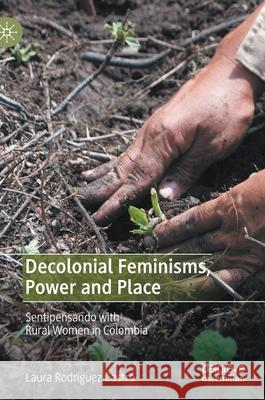Decolonial Feminisms, Power and Place: Sentipensando with Rural Women in Colombia » książka
topmenu
Decolonial Feminisms, Power and Place: Sentipensando with Rural Women in Colombia
ISBN-13: 9783030594398 / Angielski / Twarda / 2020 / 208 str.
Decolonial Feminisms, Power and Place: Sentipensando with Rural Women in Colombia
ISBN-13: 9783030594398 / Angielski / Twarda / 2020 / 208 str.
cena 362,27
(netto: 345,02 VAT: 5%)
Najniższa cena z 30 dni: 346,96
(netto: 345,02 VAT: 5%)
Najniższa cena z 30 dni: 346,96
Termin realizacji zamówienia:
ok. 16-18 dni roboczych.
ok. 16-18 dni roboczych.
Darmowa dostawa!
Kategorie:
Kategorie BISAC:
Wydawca:
Palgrave MacMillan
Język:
Angielski
ISBN-13:
9783030594398
Rok wydania:
2020
Wydanie:
2021
Ilość stron:
208
Waga:
0.41 kg
Wymiary:
21.01 x 14.81 x 1.42
Oprawa:
Twarda
Wolumenów:
01
Dodatkowe informacje:
Wydanie ilustrowane











